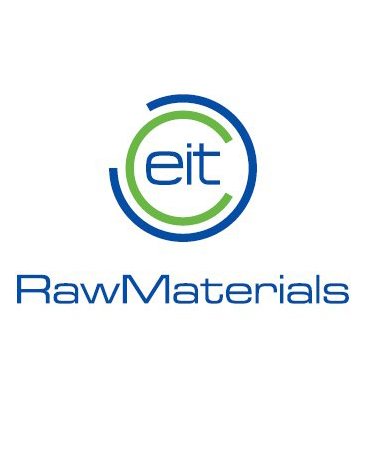
EIT KIC RAW MATERIALS PROJECTS
AMIR-RIS - Master in Advanced Materials Innovative Recycling extended by a RIS
OpESEE - Open ESEE-Region Master for Maintenance Engineering
REEBAUX - Prospects of REE recovery from bauxite and bauxite residue in the ESEE region
ESEE Education - ESEE Education initiatives
DIM ESEE - Dubrovnik International ESEE Mining School
MineTALC - Backfill Mining Optimisation for Low- and Medium- Strength Deposits
ProSkill - Development of a Skill Ecosystem in the Visegrád Four countries
RM@Schools - ESEE
TrainESEEv.2 - Training trainers in East and Southeastern Europe
UNEXUP - UNEXMIN Upscaling
MOBI-US - Structured mobilities for ESEE raw materials master programs
ENGIE - Encouraging Girls to Study Geosciences and Engineering
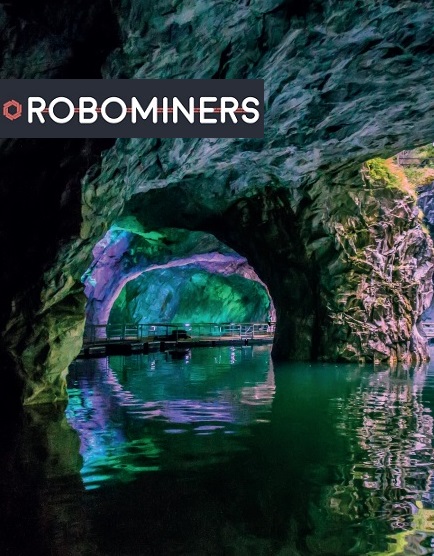
ROBOMINERS
Professional leaders: Dr. Éva Hartai, Dr. Ferenc Mádai
Project pediod: 01/07/2019 - 30/06/2023
Project budget: 7 445 900 euro
UoM budget: 276 650 euro
Website: https://robominers.eu/
The project, Resilient Bio-inspired Modular Robotic Miners, aims to combine ideas from various sectors of science, particularly robotics and integrate them for the following purposes: (1) to develop swarms of amphibian robots based on biological examples for mining small or difficult-to-access underground ore deposits, able to function in dry or flooded spaces, (2) to deliver modules through drilled access holes for robots that can re-assemble themselves, (3) to use sensors to investigate the site and allow production methods and volumes to be selected, (4) to produce a mineral slurry that can be brought to the surface for enrichment, and (5) to validate the robot-miner prototype to a technology readiness level of 4 or 5.
The ROBOMINERS project is a large-scale project supported by the EU Horizon 2020 programme, involving 14 international partners in a consortium, of which one is the University of Miskolc, with the ambitious goal of developing an innovative technology to provide more effective access to raw materials.
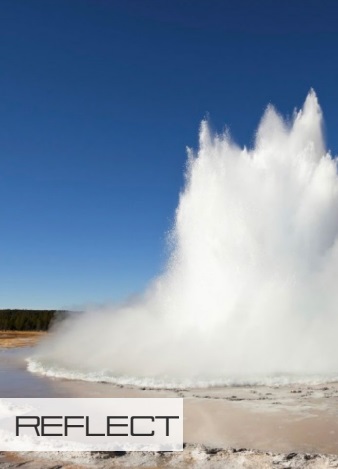 REFLECT
REFLECT
Professional leader: Dr. Tamás Madarász
Project pediod: 01/01/2020 - 31/12/2022
Project budget: 4 992 761,25 euro
UoM budget: 236 125 euro
Website: https://www.reflect-h2020.eu/
The objective of the project is to assemble a geothermal fluid atlas that gathers critical data and geophysical and geochemical parameters of geothermal systems across Europe. This can be used to make recommendations related to the sustainable operation of geothermal systems in critical areas.
The project is an R&D project financed by the EU H2020 program, with a international consortium of 14 partners coordinated by Heimholz Zentrum Potsdam Deutsches GeoForschungsZentrum GFZ (Germany) for collaboration in this research area of supercritical geothermal systems.
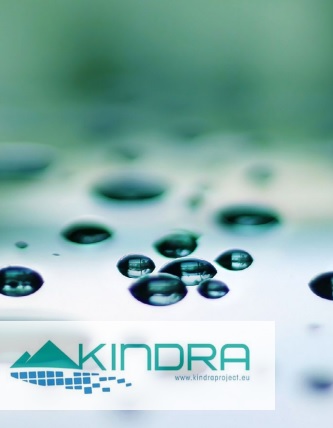 KINDRA - Knowledge Inventory for Hydrogeology Research
KINDRA - Knowledge Inventory for Hydrogeology Research
Professional leader: Prof. Péter Szűcs
Project pediod: 01/01/2015 - 31/12/2017
Project budget: 1,1 millió euro
UoM budget:: 79 500 euro
Website: https://kindraproject.eu/
The aim of the project is to conduct an EU-wide assessment of existing groundwater-related practical and scientific knowledge to serve as a means of identifying research challenges and new opportunities for innovation in water management for the implementation of the Water Framework Directive.
A six-member consortium is collaborating in the project: (1) University La Sapienza, Rome, Italy (coordinator), (2) European Federation of Geologists, Belgium, (3) Environment and Water Agency of Andalusia, Spain, (4) La Palma Research S.L., Spain, (5) University of Miskolc, Hungary, and (6) The Geological Survey of Denmark and Greenland, Denmark.
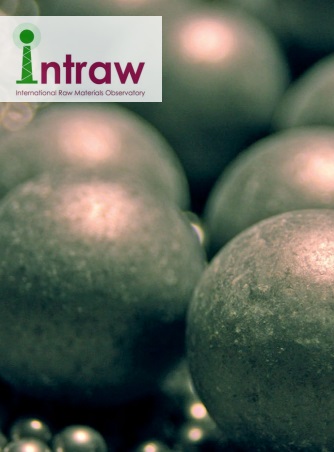 INTRAW – International Cooperation on Raw Materials
INTRAW – International Cooperation on Raw Materials
Professional leader: Dr. Éva Hartai
Project pediod: 01/02/2015 - 30/01/2018
Project budget: 2,1 millió euro
UoM budget:: 74 400 euro
Website: https://intraw.eu/
The objective of the project is to identify opportunities for and promote international cooperation on raw materials among the European Union member states and Australia, Canada, Japan, South Africa and the United States in the following areas: research and innovation; raw material policies and strategies; joint training programmes at different levels; authorisation procedures; raw material reporting systems; best practice in the exploration, production, processing and recycling of raw materials; and the management and potential substitution of critical materials.
The consortium is made up of 15 members: (1) European Federation of Geologists (EFG), Belgium (coordinator), (2) Council for Scientific and Industrial Research (CSIR), South Africa, (3) Exeter University, Camborne School of Mines, UK; (4) Fraunhofer-Gesellschaft (FRA), Germany; (5) Fundação para a Ciência e Tecnologia (FCT), Portugal; (6) Assimagra- Associação Portuguesa dos Industriais de Mármores (ASM), Portugal; (7) Australian Academy of Technological Sciences and Engineering (ATSE), Australia; (8) Geological Survey of Slovenia (GeoZS), Slovenia, (9) La Palma Research S.L. (LPRC), Spain, (10) University of Miskolc (UM), Hungary, (11) Pan-European Reserves & Resources Reporting Committee (PERC), Belgium, (12) Agency for International Minerals Policy (MinPol), Austria, (13) Recifemetal-Reciclagem de Ferros e Metais (RFM), Portugal, (14) Resources Computing International (RCI), UK, (15) American Geosciences Institute (AGI), USA.
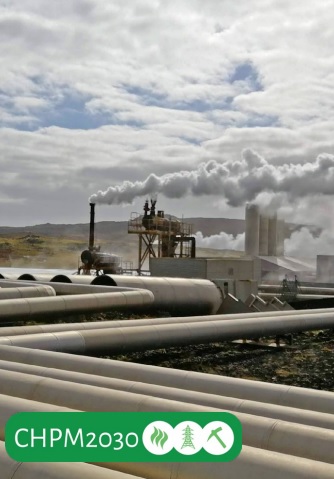 CHPM2030 - Combined Heat, Power and Metal extraction from ultra-deep ore bodies
CHPM2030 - Combined Heat, Power and Metal extraction from ultra-deep ore bodies
Professional leader: Dr. Tamás Madarász
Project pediod: 01/01/2016 - 30/06/2019
Project budget: 4,24 millió euro
UoM budget: 422 000 euro
Website: https://www.chpm2030.eu/
The aim of the project is to develop a novel and potentially disruptive technological solution that can help satisfy the European needs for energy and strategic metals in a single interlinked process through geothermal manipulation of metal-bearing deep geological formations.
A 12-member consortium is involved in the project: (1) University of Miskolc, Hungary (coordinator), (2) University of Szeged, Hungary, (3) Fédération Européenne des Géologues, France, (4) Iceland Geosurvey, Iceland, (5) British Geological Survey, UK, (6) Laboratório Nacional de Energia e Geologia, Portugal, (7) Vlaamse Instelling voor Technologisch Onderzoek, Belgium, (8) La Palma Research S.L., Spain, (9) Agency For International Minerals Policy, Austria, (9) Geological Institute of Romania, Romania, (11) Katholieke Universiteit Leuven, Belgium, and (12) Geological Survey of Sweden, Sweden.
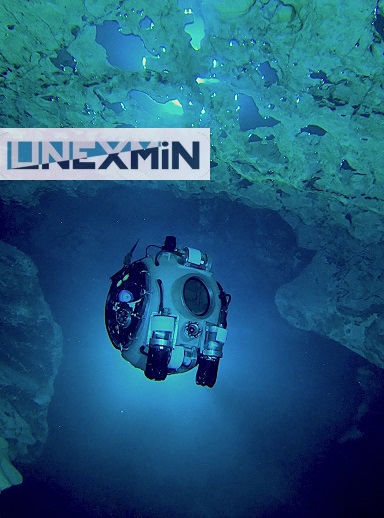 UNEXUP - UNEXMIN Upscaling
UNEXUP - UNEXMIN Upscaling
Professional leader: Dr. Norbert Zajzon
Project pediod: 01/02/2016 - 30/10/2019
Project budget: 4,87 millió euro
UoM budget: 516 000 euro
Website: https://www.unexmin.eu/
The objective of this project is to continue the UNEXMIN H2020 project (Autonomous Underwater Explorer for Flooded Mines) that ran from 2016 to 2019. The first project focused on the design and testing of a multi-platform robotic explorer for autonomous mapping of flooded deep mines. This project carries on with further development of the hardware and software of the robots, which are capable of exploring even at depths of 1500 metres. Using 3D mapping the robot collects valuable information on geology and mineralogy. These data can be used to inform decisions on re-opening abandoned mines in the European Economic Area. Such a robot has never before been designed, so this development is a pioneering effort.
The eight collaborating parties making up the consortium are: (1) University of Miskolc, Hungary (coordinator), (2) Geoloski Zavod Slovenije, Slovenia, (3) Tampere University, Finland, (4) Universidad Politecnica De Madrid, Spain, (5) La Palma Research Centre For Future Studies, Spain, (6) Inesc Porto – Instituto De Engenharia De Sistemas E Computadores Do Porto, Portugal, (7) Resources Computing International Ltd, UK, and (8) UNEXMIN Georobotics Ltd.


